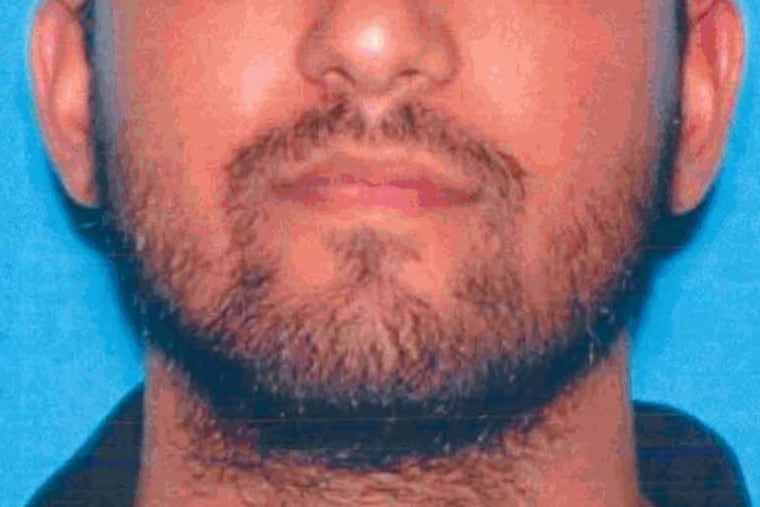Couple led secret life, hiding plans and weapons
LOS ANGELES - Early Wednesday morning, Syed Rizwan Farook asked his mother for the sort of favor grandmothers love to grant: a few hours of babysitting. Farook told her that he and his wife, Tashfeen, had a doctor's appointment and didn't want to bring their 6-month-old daughter.

LOS ANGELES - Early Wednesday morning, Syed Rizwan Farook asked his mother for the sort of favor grandmothers love to grant: a few hours of babysitting. Farook told her that he and his wife, Tashfeen, had a doctor's appointment and didn't want to bring their 6-month-old daughter.
In the account of the conversation provided by a relative through a local Islamic leader, the grandmother agreed. She was caring for the child at the couple's Redlands home when news of a shooting rampage in nearby San Bernardino broke.
Fearing for her son and daughter-in-law's safety, "she started calling. No answer," said Hussam Ayloush, executive director of the Council on American-Islamic Relations' Los Angeles office.
That Farook's own mother had apparently sensed nothing about his plans underscored a feeling among investigators and acquaintances Thursday that the couple responsible for the massacre at a holiday banquet scrupulously hid their views and a virtual armory of weapons and explosives.
Federal officials who track terrorists abroad and in the U.S. said neither Farook nor Tashfeen Malik were known to them. "This was somebody we had not heard of before," a top federal law enforcement official said.
But the cache of pipe bombs and ammunition that authorities found after the two were killed by police suggested a single-minded and long-standing focus on violence.
David Bowdich, assistant director in charge of the FBI's Los Angeles office, said the agency was analyzing digital evidence, including jump drives, for evidence related to a possible motive. "We do not know if this was the intended target or there was something that triggered him to do this immediately," Bowdich said.
Investigators were particularly focused on the relationship between Farook, 28, a U.S. citizen of Pakistani descent, and Malik, 27, a Pakistani national. Coworkers recalled Farook telling them he met his wife online and was making a trip to Saudi Arabia to marry her.
He spent nine days in Saudi Arabia in summer 2014, according to the Saudi Embassy in Washington.
When Farook returned to the U.S. that July, he brought Malik on a so-called fiancee visa, law enforcement officials said. They subsequently married, and she was granted a conditional green card last summer.
Their daughter was born last spring, and coworkers at the San Bernardino County Public Health Department, where Farook worked for five years as an inspector, said they had thrown him a baby shower.
Some of those coworkers, as well as neighbors and other acquaintances, said they were struggling to reconcile the soft-spoken man they knew with the masked gunman who, along with his wife, used assault rifles to shoot up a room of people he knew.
One colleague who was shot multiple times, Julie Swann-Paez, was incredulous when relatives at her hospital bed informed her that Farook was the shooter. "That doesn't make sense," she said, according to her son, Nick Paez. "They were congratulating him for having a baby."
There was also shock at the Islamic Center of Riverside, Calif., where Farook had worshipped until about two years ago. Mustapha Kuko, the director of the mosque, said Farook was quiet, but seemed to take Quran study very seriously, often attending both morning and evening services.
"So he knows that we believe that to take one life is to take all life," Kuko said. He noted that one of his congregants, a social worker, suffered multiple gunshot wounds in the massacre.
"It's very likely that they knew each other, and Farook must have known she was there," he said.
More recently Farook had worshipped at a San Bernardino mosque, Dal-Al-Aloom Al-Islamiyah, congregant Nizaam Ali said. Farook was shy, but volunteered that he had met his wife online, and that they married at Mecca, the holy site in Saudi Arabia, Ali said.
"It doesn't make sense," Ali said. "We're shocked."
Farook was born in Chicago in 1987, the son of Pakistani immigrants. The family subsequently moved to Riverside, where his father worked as a truck driver and his mother was employed by Kaiser Permanente.
He and his siblings attended public schools. An older brother, Syed Raheel, served in the Navy from 2003 to 2007 and was awarded two medals for service in the "Global War on Terrorism."
Farook graduated from California State University, San Bernardino, in 2010 with a bachelor's degree in environmental health. He enrolled in a graduate program in environmental engineering but dropped out last year after a single semester, school officials said.
Farook's mother, Rafia, portrayed family life as chaotic and sometimes violent in divorce papers she filed in 2006 to end her marriage of 24 years.
She said her husband, also named Syed, was "irresponsible, negligent and an alcoholic" who "continually harassed me verbally and physically." She recounted an occasion where one of her two sons - it is unclear which one - had to defend her from his father.
"My son came in between to save me," she wrote in court papers.